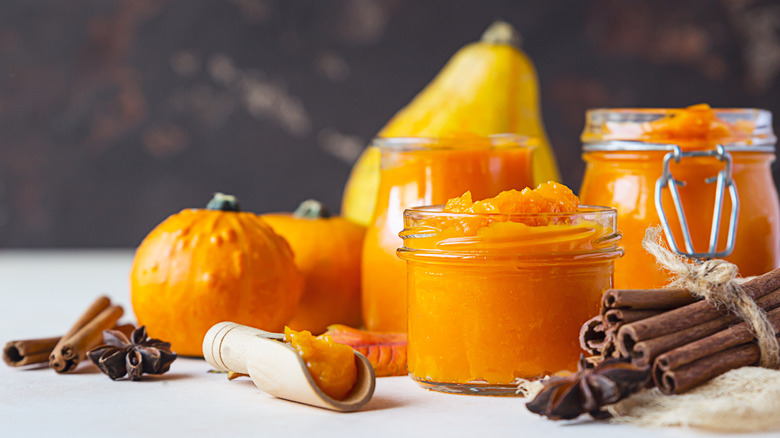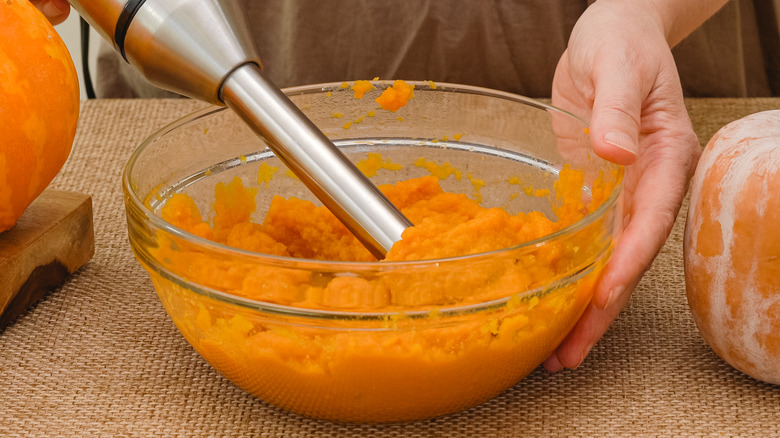Why It May Be Dangerous To Can Your Own Pumpkin
Canned pumpkin is a delicious pantry staple that can add nutrition and flavor to a variety of dishes. It can also help make for quick desserts like pumpkin pie or pumpkin cheesecake. It's a great idea to keep canned pumpkin in your pantry all year long, but it's important that if you want to do it yourself, you're doing it safely.
Gardener's Supply Company says it's quite easy to grow your own pumpkins. They can even grow in small raised beds or containers, and the small sugar pumpkins that are best for cooking won't grow to quite the same rotund shape as your Halloween jack o' lantern. When your pumpkins have become fully grown though, and are ready for storage, it's important to make sure that it's done the right way.
Canning food is a great way to preserve most fruits and vegetables, but the National Center for Home Food Preservation says that you'll have to can pumpkin carefully. Canning pumpkin in its pureed form might seem like the easiest method, but it's not as safe as sticking with whole or cubed pumpkin.
Pumpkin puree can't be safely canned
There are a few important qualities for a food to be properly canned and kept at room temperature. One of the most important is acidity. Low acid foods are not as resistant to bacterial growth as highly acidic foods like tomatoes. But some low-acid fruits or vegetables can still be canned when they are treated in a pressure cooker rather than a hot water bath. This is because pressure cookers do a better job of killing off microbes and allow foods to be preserved safely. The Prairie Homestead points out that if you have a pressure cooker, you can can cubed pumpkin because the process will kill off most of the bacteria.
Living Homegrown points out that pumpkin puree is too thick to be canned. This makes it difficult to achieve a consistent temperature throughout the puree that is warm enough to kill off all bacteria. PSU Extension says that there is currently a lack of well-tested methodology that shows heat can adequately penetrate to the center of pureed pumpkin to kill off the bacteria that causes dangerous infections like botulism. Instead, The National Center for Home Food Preservation recommends storing pureed pumpkin in the refrigerator or freezer and treating it as you would fresh pumpkin.

